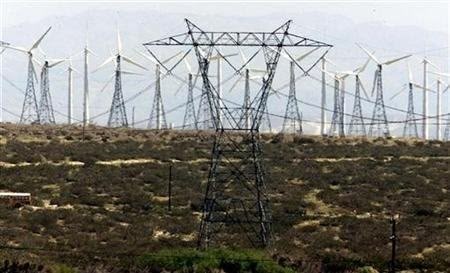NJ governor orders investigation into soaring electric bills. Wait til he finds out his own government is the culprit . . .

Photo above - electric grid capacity planning, according to the experts. This is an actual photo, not AI generated or photoshopped.
Suppose you found out there were 250 data centers sucking up all the kilowatts from your grid. And 130 more under construction. Would you be concerned? Governors and state legislators, apparently not so much up until now. They delegated energy oversight to a monopoly called PJM. See links below.
Let me agree with everyone who is shouting “But darn it - legislators themselves aren’t competent to make decisions about amps, volts and watts”. No doubt. But if the governments of Pennsylvania, New Jersey, Maryland and Virginia delegate this sort of responsibility to industry insiders, then where should the blame go for soaring bills?
New Jersey’s residential energy bills went up 20% this summer. That's sure to wreak havoc someone’s inflation index. Well, maybe not so much: the US government has excluded or minimized “volatile” expense items like energy and housing from its inflation calculations. Yowza – that’s half my monthly spending. No wonder we’re always getting screwed.
The problem here isn’t the PJM electric capacity auction. It’s the 250 existing data centers and 130 more under construction. Until recently, utilities weren't allowed to refuse new AI and server hookups. Their authority was limited to auctioning capacity between member grids. Imagine the outrage among Governors and state legislators if some wonk with a pocket pen protector tried to say “no” to a new data center, AFTER those politicians had already received millions in campaign contributions.
Starting now politicians DO want PJM and similar industry insiders to have the ability to say no to data centers. This will be in addition to review by planning and zoning commissions, public safety boards, review of architects’ plans, road capacity assessment, and public hearings, which are already a doozy. Young people want jobs. Old people want peace and quiet, with no more construction. It only gets worse if data centers want their own dedicated solar or wind turbine farm-ettes. Let alone a private nuclear plant. Imagine the chaos at the next a public hearing when an Amazon warehouse proposal comes with a nuclear power plant tucked away the basement.
There are no obvious solutions to this energy demand conundrum. Saying no to growth, vs allowing electric meters to spin like turbocharged gyroscopes is a Hobsons choice. What makes it scarier is that all of these decisions WILL eventually be made by some state legislator named Rosa Lasagna. Whose previous job was serving on the local school board.
I’m just sayin’ . . .
N.J. orders investigation into why residents’ energy bills are soaring
Philly electric bills: Who’s in charge of the grid? - WHYY
PJM launches fast-track push to set rules for adding data centers



